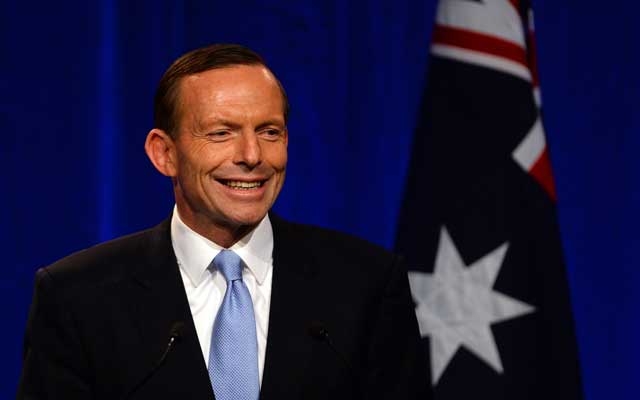Illegal immigration is a major issue in almost every developed nation, and Australia is increasingly becoming a flashpoint in the global debate. After six disastrous years of mismanagement under left-wing governments, conservative Prime Minister-elect Tony Abbott is trying to stop the illegal smuggling of asylum seekers from Indonesia. According to Abbott, changes could start as early as this Wednesday.
Abbott has shown every indication that he plans to approach the issue with sensitivity to what is one of Australia’s most important international relationships; he’s also indicated however, that Australia must do what it must do. Indonesian reaction to his policy could raise tension in the region. With effects spilling into at least three nations, the issue will be an early test of Abbott’s foreign policy skills.
Every year, several thousand people illegally enter Australian waters by boat and then claim refugee status due to their origins in war-torn nations such as Afghanistan. Generally, they pay smugglers to ferry them from Indonesia to the waters around the Australian territory of Christmas Island. Often, the smugglers use unseaworthy vessels, necessitating rescue operations by the Australian navy.
The smuggling had previously been brought to a standstill by Prime Minister John Howard’s “Pacific Solution” of 2001, under which refugees were sent to detention centers in Pacific island nations while they waited for their refugee status to be verified. In addition, a number of boats were refused entry and turned back to Indonesia. This dropped the number of boat arrivals to near zero. However, the rise of Kevin Rudd’s Labor Party government in 2007 saw the end of the Pacific Solution, the closure of the detention center in the nation of Nauru, and a corresponding influx of thousands of immigrants arriving by boat.
The spike in the number of boats became one of the hottest issues in Australian politics. Then-opposition leader Tony Abbott repeatedly called for the re-opening of the Nauru processing center. Eventually, Rudd’s Labor successor Julia Gillard was forced to re-open the facility after her other plans failed, but no boats were turned back. Naturally, more kept arriving.
Rudd returned as prime minister earlier this year after ousting Gillard from the Labor Party leadership, and he immediately announced his own version of the Pacific Solution in the face of a looming electoral defeat. However, while it had some merit, that plan potentially inflamed the issue even further. Striking a deal with the Prime Minister of Papua New Guinea (PNG), Rudd announced that asylum seekers who arrived by boat would be denied any chance of ever settling in Australia—even if their claims were genuine. Instead, genuine refugees would be resettled in PNG. This plan drew criticism from many citizens of PNG, as the impoverished nation is likely incapable of assimilating thousands of refugees.
To make matters worse, on the day Rudd announced his “PNG Solution,” detainees at the Nauru processing center burned down 80 percent of the facility after false rumors sparked a riot and mass escape.
Abbott campaigned in the recent election on a pledge to turn boats back to Indonesia. However, the Indonesian government has now indicated that it will refuse to accept the returning boats, despite their origin in that country. In addition, the Indonesians are flatly rejecting Abbott’s plan for the Australian government to buy aging and unseaworthy vessels from Indonesian fishermen, who would normally sell retired boats to smugglers for the one-way trip to Christmas Island.
This issue should demand the attention of those interested in the Pacific, as it could have major implications not only in Australia but also in Indonesia, Papua New Guinea, and Nauru. The Australian government has every right to stop this dangerous people-smuggling trade.
After six years of leftist mismanagement, Abbott’s new government has been left with quite a mess to clean up. It will test his skill as a statesman.
































